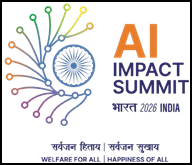Global Context
- Over the past year, AI regulation has become a global policy priority.
- Many nations have shifted focus from social inclusion and ethics to innovation and economic advantage.
- Legally binding AI regulations exist in:
- China, European Union, Canada, South Korea, Peru, and the U.S. (Note: U.S. President Trump has revoked President Biden’s AI Executive Order).
- Countries with draft AI legislation: U.K., Japan, Brazil, Costa Rica, Colombia, Pakistan.
- 85+ nations, including the African Union, have released national AI strategy documents outlining developmental and ethical goals.
India’s Current Approach to AI Policy
- India does not yet have a formal law or endorsed national AI strategy.
- The 2018 NITI Aayog report on AI remains unofficial and unfunded.
- The IndiaAI Mission aims to create a robust AI ecosystem through seven thematic pillars, including:
- Foundational model development
- Skilling
- Innovation hubs
- Data platforms
- An expert advisory group is drafting governance recommendations, but these remain non-binding.
Pros and Cons of India’s Flexible Approach
- Advantages:
- Allows adaptability to evolving technologies and global trends.
- Offers policy flexibility amid geopolitical and economic shifts.
- Disadvantages:
- Absence of a clear roadmap undermines strategic direction.
- No defined milestones, budget, accountability mechanisms, or enforcement structure.
- Policies may become reactive or dependent on individual leadership agendas.
Urgent Need for Guardrails
- India’s AI adoption is rising swiftly, yet regulatory and ethical oversight remains weak.
- Most AI deployments in sectors like healthcare, finance, education, public administration lack:
- Algorithmic transparency
- Efficacy metrics
- Evaluation protocols
- Voluntary compliance dominates, posing risks of:
- Discrimination
- Privacy breaches
- Cybersecurity threats
- Labour displacement
- Social unrest from AI-generated misinformation
Global Lessons: Data Regulation as a Blueprint
- India’s Digital Personal Data Protection (DPDP) Act, 2023 takes a centralised, cross-sectoral approach, like:
- EU’s GDPR
- China’s PIPL
- The U.S. model is sector-specific and decentralised.
- China leads with specific laws for generative AI and deep synthesis.
- India could pursue a hybrid governance model, building on the DPDP Act to develop sectoral AI regulations.
The Case for an Official AI Policy
- An official AI policy (not legislation) is an actionable short-term goal.
- Benefits include:
- Piloting enforcement mechanisms
- Outlining India’s AI vision, implementation strategy, and ethical use cases
- Designating responsible authorities
- Identifying priority sectors for AI-driven growth
Initiating Public Discourse on AI Ethics and Impact
- The Indian government must lead public discussions on AI’s societal implications, including:
- Bias and fairness
- Labour market disruptions
- Data provenance
- Algorithmic accountability
- Ignoring these aspects may exacerbate existing inequalities and undermine citizen trust.
Policy Recommendations
- Draft and release a National AI Policy that details:
- India’s vision and goals
- Implementation frameworks
- Ethical guardrails
- Sector-specific opportunities and risks
- Foster public and stakeholder discourse on AI development, ensuring democratic oversight and inclusivity.
- Leverage lessons from global regulatory models while aligning with India’s socio-political and economic context.
TH

















